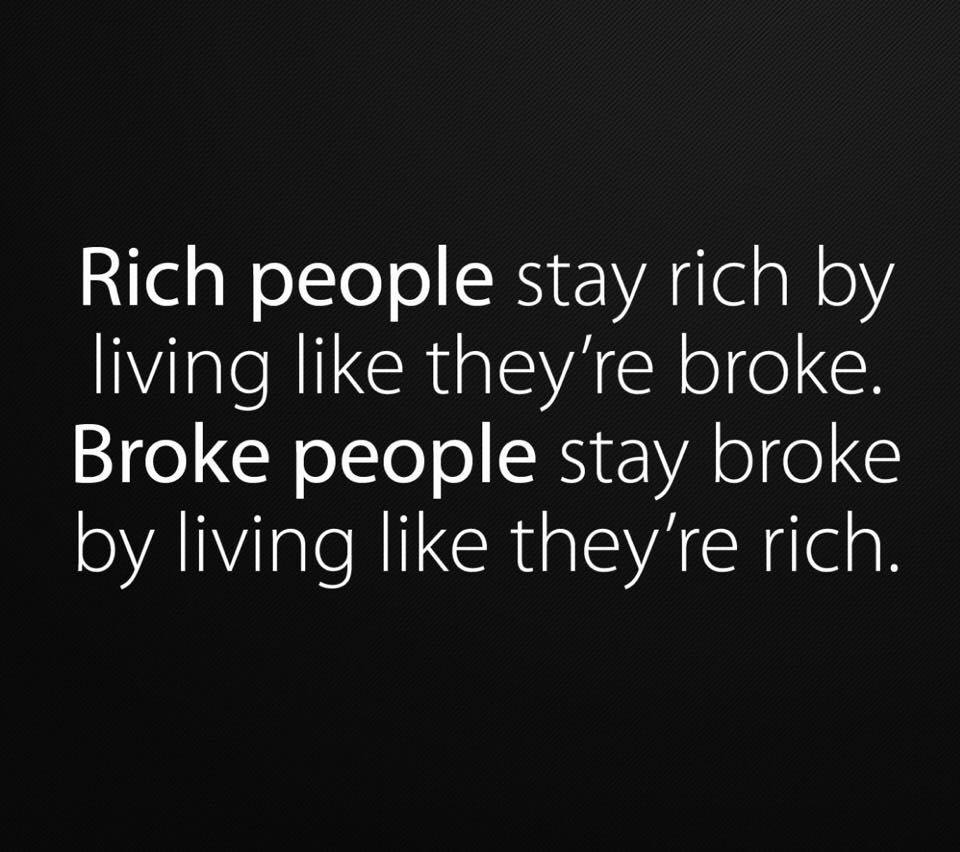Welcome to another installment of Interviews with Real Female Physicians. The goal of this series is to share their story so that you, the reader, may learn and be inspired from their experiences – good and bad. We all come from different backgrounds and have different situations. Some of you are married, some are not, some with kids, some with blended families. Let’s show other women that any of these can work financially! So let's introduce our next woman physician rockstar – Clarissa.
Tell us about yourself:
I am an Internal Medicine trained Hospitalist, mom of 2 preteens and married to my husband for over 10 years. I have been an attending for almost 12 years. I grew up in the South and have chosen to live there as well. I love to read and am finally in a place where time and finances are allowing a healthy travel life. I have always been on the frugal side and have managed to build some wealth this way but have really kicked it in gear this year (partly inspired by Doc Moms Finance Group on Facebook) to really make my money work for me and build wealth more quickly. In the past year, I've cut down on the shifts I have worked but have still been able to save more than I previously had by making smarter and more deliberate choices. I think was born to be an internist and have no qualms about the specialty I picked. I do like the flexibility of hospitalist work in that I can have some very intense periods of patient care and then be completely off. Its taken me awhile to find the right balance but I feel that I have found it in the past year. Having a spouse (or family or hired help) that can really dive in with the child care and housework is really a must for the hospitalist career to work for me. It does involve several weekends, holidays and evenings. I love the flexibility Internal Medicine gives to women even if you don't specialize. You have the most leverage if you can be per diem and don't depend on benefits. The hourly rate for hospitalist is very good and now that I found a schedule that works for me I have no regrets. I often tell medical students to pick a career where they feel the quality of their work and commitment while they are at work won't suffer if they plan to have kids. Although I work less, I am totally committed to my patients when I am in the hospital (this is the reason I picked a shift work type career). I live in a big city in the south. The cost of living is rising but much better than East coast or West coast and the lack of state income tax helps in reducing costs. I don't think I could work as little as I do if I was in a different HCOL area.Did you graduate with student loans?
I was very lucky in that my parents valued education above all else and my education was paid for. I went to a private undergraduate university but finished in 3 years with AP credit. I chose to go to a public state school which helped tremendously too (about 10K a year) . Because I had a certain amount budgeted for living expenses a year, I was careful with that money and often spent less than my colleagues that had loans because I was very debt averse. Knowing the advantage that no student loans gave me, one of my financial goals is to at least pay for the undergraduate education for my children.Financial aspects of kids
I had my first child as I was finishing my residency and my second 2 years after that. In some ways I would have liked to have more but circumstances had us stop at 2 . I also wasn't sure it would be feasible to fund the education of 3 children with my salary. Early on, we had a nanny which was a lifesaver for us. It probably cost us about $2000-2500 a month but the cost was much more reasonable than what I see people paying now. We did this for about 3-4 years. When we moved to our current city, our top priority was to be a great public school zone and we have managed to keep them in public school. This has been one of the number one ways that we have managed to build wealth. If it was the choice between a bad education and paying the cost, I would definitely pay but putting everything in place for them go to great public schools has paid off very well. On a side note, I think the pressure of lifestyle creep is less in the public school crowd (although can still be there if you live in an expensive area). As mentioned before, our intent is to pay for undergraduate education in full for both of our kids.Financial aspects of marriage
I have been married for almost 14 years. My husband and I married at the start of each of our careers. We didn't get a prenuptial agreement because we started out without any significant assets or previous children (first marriage for both). We are both similar in our philosophies– stay away from debt, live below our means and try to give generously when able. I handle 95 % of the finances because I enjoy it and it comes more naturally to me. Also as the primary breadwinner, I am more aware of what is coming in and going out. A few years ago, my husband made the decision to be a SAHD. He was unhappy with his work. Overall (after taxes, child care, etc) it didn't make a significant impact on our finances for him to stay. In general, he enjoys it and ideally, now that our kids are older, he would like some flexible contract work but it enhances both our quality of lives (and our kids) for him to be mainly a SAHD. There is less of a logistical headache with pick ups and summers and we can travel more with my flexible schedule. It definitely can be socially isolating for a man to be a SAHD but I think as more men choose this path, there will be more of a community and more get togethers. It can be emotionally hard to bear the burden of all the family's income but in the end I think the tradeoff is worth it for us. I think the only way it works is if both partners agree that it is the best arrangement.
Have you experienced a financial catastrophe?
My biggest mistake/catastrophe is that I should have signed up for disability insurance early in my career (like right out of residency) before I had any dings in my medical history. Even the most minor things can get you “blacklisted.” Luckily, I have a good policy through my employer but am limited in my job choices until I can become financially independent by my ability to get disability.General Finances
Who handles the finances in your relationship? Are you DIY or do you have a financial advisor?
I handle the finances in our relationship. We have met with advisors a couple of times in the past 5 years and adjusted our big picture accordingly (made sure we had wills, enough life insurance, started a taxable brokerage account) but I do the day to day stuff. Our invested money currently is either in targeted funds for retirement or college or in the Bogleheads portfolio. I keep it super simple.What is your net worth?
Our net worth at this point without 529s is about $850K, this includes equity in our home.How are you saving for FI/retirement?
For retirement, I have contributed max amounts to 403(b) for the past 10 years and get a fairly good match. I am just now wading into my hospital's 457(b) and a taxable brokerage account to augment. I will also be more diligent about yearly Backdoor Roth and spousal Roth IRAs. My 403(b) and Roth IRA is invested in a target fund. My taxable brokerage account is in a Bogleheads-type portfolio (40% bonds, 12% international and 48% total stock market) – it's more conservative because we may use it for short term issues as well . I rebalance the retirement accounts quarterly.One thing you wish you knew:
I waited a year before I started contributing to retirement during my first job and didn't contribute at all during residency so I missed out on free money with employer match that year. I also didn't invest in a Roth IRA like I should have. Other things I wish I had done is just taken a few hours to learn more about investments and expense ratios. We had money from previous jobs just sitting there doing nothing until we consolidated them all and put them in low fee accounts.Do you have insurance?
Long term disability is through my work and I bought a small supplemental policy when I left my job which is not great but is better than nothing. As of now, I thankfully have never had to use my policy.What does FI/retirement mean to you? What does it look like?
Financial independence to me means only working if I want to. I don't have a specific age but hope to get there at about age 55.Do you give to charity? If so, where and why?
We try to give at least $15-20K a year to charity – split between my church, fundraisers for reputable organizations my friends are involved in, Compassion International, kids' school and International Justice Mission. The reasons we give are multifold but from a religious perspective, we are called to tithe. Also, i feel that “to whom much has been given, much is expected.”Any parting words of wisdom?
It's been a great year of organization and growth for me in the past year (thanks to the invigorating and encouraging community of Doc Moms Financial Group). My top pieces of advice are: Get started early It's easy to let the details overwhelm you. In retrospect, I wish I had started putting money consistently away even if they weren't perfect investments (by this I mean, even just 1 moderately well performing index fund would have been better than letting money languish). Don't let perfect be the enemy of the good. Take the time and effort (not as much as you think) to consolidate accounts It really doesn't take that much time to consolidate accounts and it gives you a lot more insight/wisdom. This year, my husband consolidated all of his accounts into a new Roth IRA. I consolidated my Profit sharing accounts and 401(k)/403(b)s into either Vanguard or my current employer's 403(b). I think this was about 5 different accounts. The people on the receiving end are very helpful. We lost a lot of virtual gains by letting money sit in accounts that were not well invested and charged high fees. Live below your means We are overall pretty good about this but there is always room for improvement. Ignore what people around you are buying and doing. If you looked at my coworkers who have the most enviable lives, they are also the ones with the lowest net worth. It's not worth it. If you can control your costs, it gives you so much flexibility in how much you work, where you can travel, etc. Bargains aren't bargains if you don't need them I have been totally guilty of buying too much off the clearance rack. As a result, I give a lot of clothes away that still have tags on them. I am trying to embrace a more minimalistic mindset. The savings in cost and clutter are amazing. I highly recommend Joshua Becker's “Becoming Minimalist ” blog and Facebook page.And … that's a wrap! If you're interested in doing this please send me an email – I'd love to hear from you!
I loved reading Clarissa's story and I hope you did too. She's a pretty wise lady.]]>
Get the bestselling book - Defining Wealth for Women.




